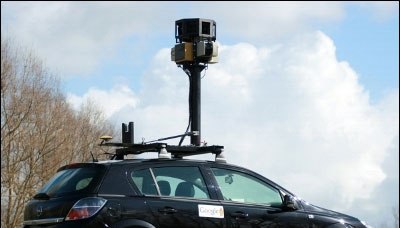ICO Clears Google ‘WiSpy’ Data

The data collected by Google’s Street View cars cannot be linked to any individuals, according to the ICO
The Information Commissioner’s Office (ICO) has examined samples of the data collected by Google in the notorious “WiSpy” incident earlier this year, and concluded that it is free of any “meaningful personal details”.
The news will come as a relief to Google, which is currently undergoing investigations by Scotland Yard and the US Federal Trade Commission, as well as regulators in Europe.
Collecting data

Google admitted in May that it had accidentally collected more than 600GB of data from unsecured Wi-Fi networks while photographing streets around the world for its Street View application. The incident caused outrage from governments and privacy advocates, and Google was forced to remove its cars from the streets.
When Google realised there was a problem it separated the data and disconnected it from the network. The company has since agreed to surrender the data to European authorities and US officials.
The ICO today announced that it has visited Google’s premises to assess samples of the data. An ICO spokesperson explained that “Whilst Google considered it unlikely that it had collected anything other than fragments of content, we wanted to make our own judgement as to the likelihood that significant personal data had been retained and, if so, the extent of any intrusion.”
The ICO was only granted access to samples of the records collected in the UK, but of those it examined, there was nothing that could be linked to an identifiable person.
“On the basis of the samples we saw we are satisfied so far that it is unlikely that Google will have captured significant amounts of personal data,” it said. “There is also no evidence as yet that the data captured by Google has caused or could cause any individual detriment.”
Unethical?
For many people, however, it is not so much the data itself that is significant but the the principle of the matter. Campaigning group Privacy International has compared Google’s actions to “placing a hard tap and a digital recorder onto a phone wire without consent or authorisation.”
It has also been suggested that Google intentionally broke the law when its Street View project gathered Wi-Fi data, and that an audit (PDF) published on Google’s blog gives clear evidence of Google’s intent to systematically intercept and record the content of communications.
“The Information Commissioner is taking a responsible and proportionate approach to this case,” said the spokesperson. “However, we remain vigilant and will be reviewing any relevant findings and evidence from our international counterparts’ investigations.”
Despite the controversy, Google announced earlier this month that its Street View cars are back in action in Ireland, Norway, South Africa and Sweden. More countries are expected to be added in time.
“The WiFi data collection equipment has been removed from our cars in each country,” said Brian McClendon, vice president of engineering for Google Geo, at the time. The cars will now only collect photos and 3D building imagery collected using low power lasers.